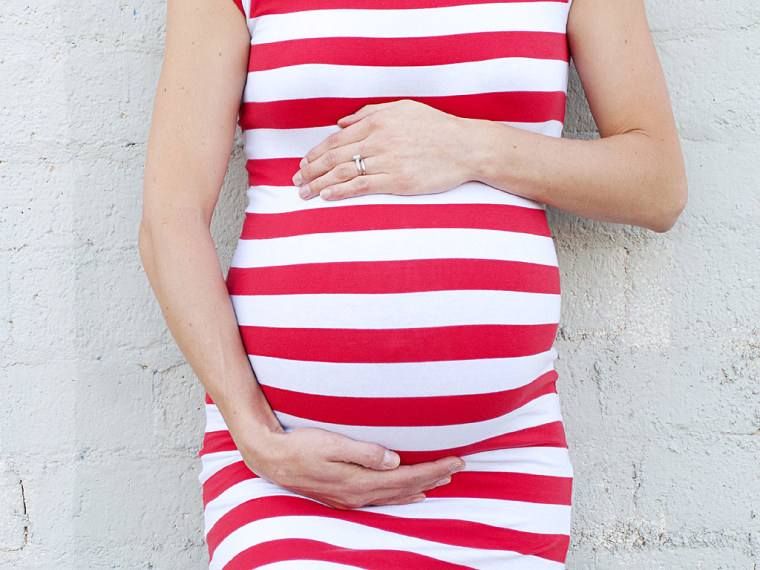One of the many things no one tells you about pregnancy is how many tests there are -- blood tests, urine tests, tests where you down a weird orange drink (it checks your blood sugar levels). But prenatal testing helps your doctor check on the health of you and your baby-to-be.
In the past, however, parents-to-be who wanted to detect chromosomal disorders (such as Down Syndrome or Trisomy 18) in their baby had to make a choice: Either have a screening test that only reveals your baby's risk of having one of these conditions or have an invasive diagnostic test—such as amniocentesis or chorionic villus sampling (CVS)—which provides a yes-or-no answer, but carries a small risk of miscarriage from the procedure.
A new type of prenatal screening however, offers parents-to-be a better option. Cell-Free Fetal DNA testing detects chromosomal abnormalities through a simple blood test that is more accurate than current screening tests and can be done earlier in pregnancy—as early as the 10th week, with results about one week later—without any of the miscarriage risk of an invasive procedure, according to the March of Dimes. Here's what you need to know.
How it works: During pregnancy, cells and genetic material from the baby circulate in a mom's bloodstream. Cell-Free Fetal DNA takes a blood sample from the mom and screens that free-floating baby DNA for certain genetic disorders. Previously, doctors needed to analyze a sample of either amniotic fluid (amniocentesis) or a tissue around the placenta (CVS) taken with a needle to obtain similar information.
What can be detected? An unborn baby can be screening for chromosomal disorders such as Down syndrome (trisomy 21) and trisomy 18 and Rh blood incompatibility. The tests can also can determine gender, which allows doctors to screen for disorders carried on the X chromosome, such as hemophilia.
How accurate is it? In a blind study of blood samples taken from 26 healthy pregnancies and 14 with Down syndrome, the new test correctly IDed all cases of Down Syndrome, according to a 2011 study in the journal Nature Medicine. And a new statement from The American College of Obstetricians and Gynecologists notes that "this technology can be expected to identify approximately 98 percent of Down Syndrome with a false positive rate of less than 0.5 percent." Current screening tests are not as accurate and have a higher false positive rate (when results incorrectly indicate a disorder), which in addition to causing stress, can result in the need for a follow-up amnio or CVS to determine if there really is a chromosomal disorder.
Why get tested? "Prenatal diagnosis gives parents important information about the health of their baby and the status of their pregnancy. More often than not, prenatal screening reassures parents that their baby is healthy and that these disorders are not present," says Joe Leigh Simpson, M.D., March of Dimes senior vice president for Research and Global Programs. "For a high-risk infant, prenatal diagnosis gives parents and health care providers options that may include planning for a health problem or arranging for delivery in a medically appropriate setting. The first step toward treating these problems is diagnosing them, and cell-free DNA methods, without the need for invasive measures, are welcomed."
Who should get screened? The American College of Obstetricians and Gynecologists recommends that only high-risk mamas-to-be should get cell-free fetal DNA testing. The reason? The test has not been sufficiently evaluated in low-risk groups (or on those carrying more than one baby). You're considered high-risk if you're over 35, have a history of carrying a child with a trisomy disorder or if an ultrasound indicates an increased risk.
A version of this story originally appeared on iVillage.
